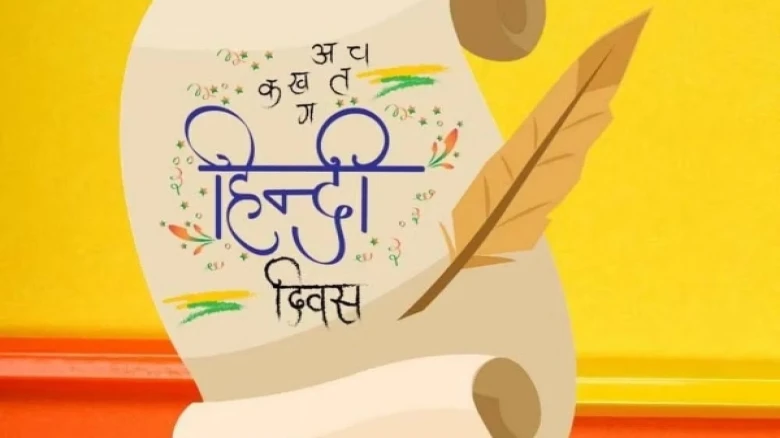Hindi Day is especially celebrated with the intention of educating and promoting the worth of Hindi language...
Digital Desk: Hindi is the most widely spoken language in India. It is popular in various states around the country. Hindi is also the most often used language for everyday discourse. In comparison, Hindi is the fourth most spoken language in the world, following Mandarin, Spanish, and English.
Every year on September 14th, Hindi Day is observed with the goal of educating people about the value of Hindi and promoting it.
Today, on this important occasion, Know why the 14th of September was chosen as the date to celebrate Hindi Diwas. We'll also look into why the name Hindi was given-
There are two reasons to observe Hindi Diwas on September 14th. In fact, on this day in 1949, after much debate, Hindi in Devanagari script was declared the official language of the country.
The date of February 14th was picked by the country's first Prime Minister, Pandit Jawahar Lal Nehru.
When was the first time Hindi Day was observed?
This day was originally observed in 1953, at the request of the Rashtriyabhasha Prachar Samiti. The purpose of honouring this day was to raise the profile of Hindi, but it also commemorates the birth anniversary of the renowned Hindi poet Rajendra Singh.
Aside from being an Indian scholar, Hindi-eminent, culturalist, and historian, he was instrumental in creating Hindi as the official language of India.
What is the origin of the name "Hindi"?
You are all aware of the history of Hindi Day, but are you aware of how the Hindi language earned its name? If not, please allow us to inform you of this as well. Perhaps you are also aware that the name Hindi was derived from another language.
The Hindi name, taken from the Persian term 'Hind,' means "Indus River Land." The language spoken on the banks of the Indus River was dubbed 'Hindi' by Persian-speaking people in the early 11th century.
Hindi stems come from Sanskrit, an ancient Indian language. It is influenced by languages like as Arabic, Persian, Turkish, Portuguese, and English, and it is a member of the Indo-European language family.

Leave A Comment